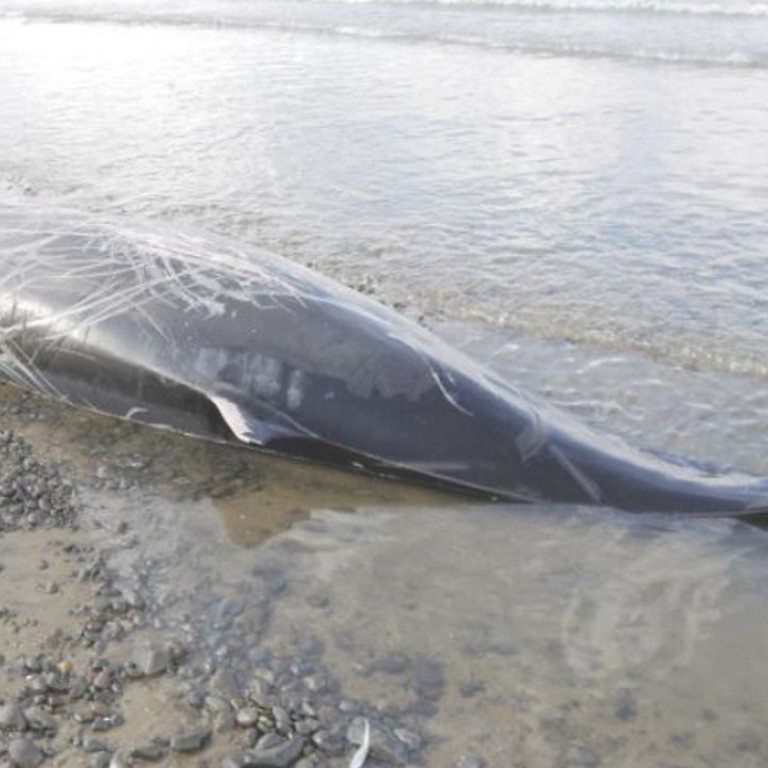
A small Japanese town has a big mess that could bankrupt it … a beached whale and 400 tonnes of dead, stinking sardines
Since the end of January, tonnes of sardines have washed up on the shores of Yokohama. Things got worse when a dead whale showed up
A small town in northern Japan that has been suddenly beset by beached sea life has taken matters into its own hands after discovering the cost of cleaning up its normally pristine coastline would effectively bankrupt the community – but has created a new problem for itself in the process.
Since the end of January, an estimated 400 tonnes of sardines have washed up on the shores of the town of Yokohama, in Aomori Prefecture.
But the problem of dealing with the decaying creatures was significantly worsened when a local resident discovered the 1-tonne carcass of a whale that had drifted onto the beach.
The creature has been identified as a Stejneger’s beaked whale, pods of which are occasionally to be found in Mutsu Bay, an official of the Yokohama town hall said.
But no one can remember the last time one was found dead on the beach. Similarly, there are no records of hundreds of tonnes of sardines washing ashore in the region.
“It has been very sudden,” said Naomi Akita, from the Yokohama Municipal Government.
“We have not heard of this happening before and we can only guess that it is because it has been so unusually cold this winter.”
The town’s problems have been compounded by the cost of clearing the beaches of decaying fish. The prefectural government has contributed to the Y2.8 million (US$26,200) cost of disposing of the sardines – but there was nothing left in the kitty when the whale was discovered, Akita said.
With the creature beginning to decompose, however, the town decided it had to act. Over the weekend, the carcass was excavated from the sand and dragged up the beach, where officials decided the best course of action was to wrap it in tarpaulins until it could be properly disposed of.
Unfortunately, the plan failed to take into account the increasingly rapid putrefaction of the 5-metre-long whale’s remains.
“It is well covered up, but it smells really bad because it is decaying,” Akita admitted.
Discussions are now under way – with a growing sense of urgency – about how the remains can be discarded most effectively and quickly.
One plan that is being explored is to again ask the prefecture for financial help.

